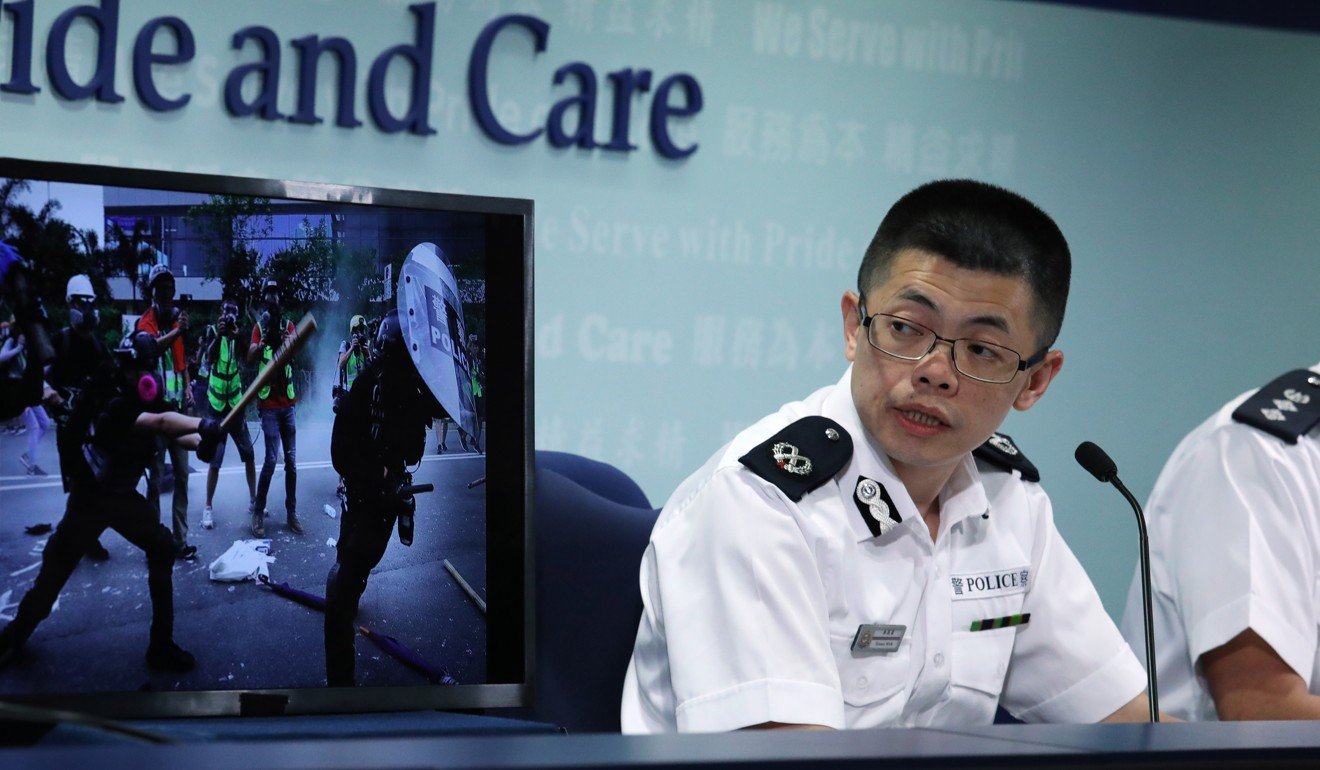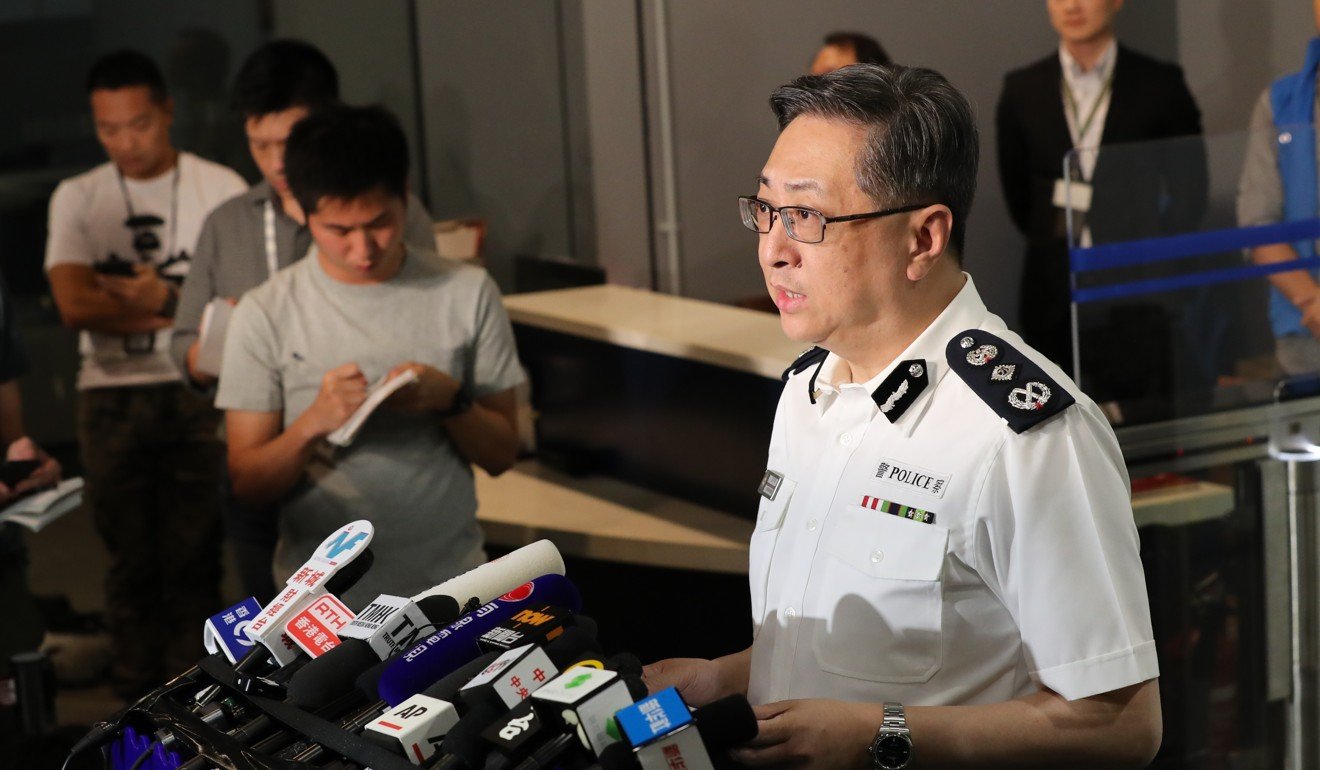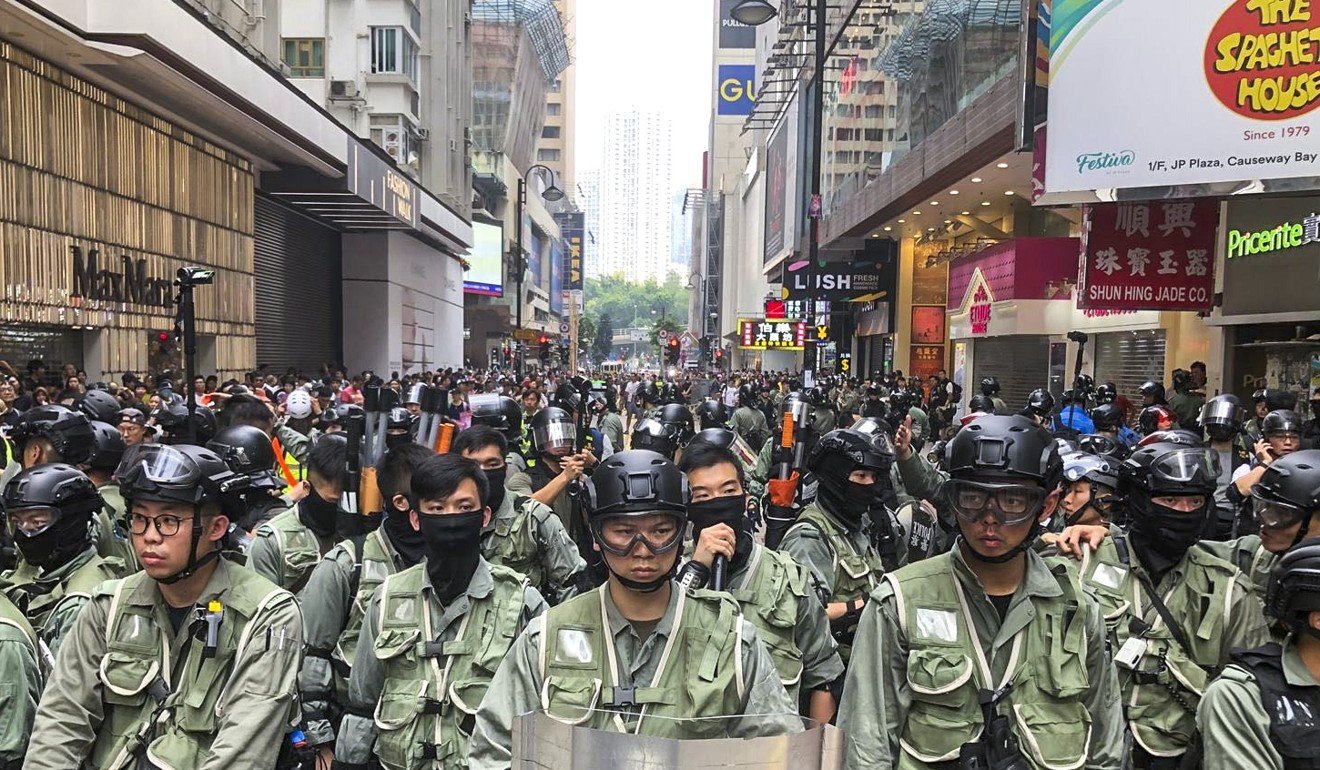
Shift in police tactics? Ex-commander of elite ‘Flying Tigers’ squad to be new operations chief overseeing handling of Hong Kong’s protest unrest
- Frank Kwok will swap posts with current assistant police commissioner in charge of force’s operations to bring ‘innovative’ tactics to drawn-out battle
- Source says move does not signal that police will increase degree of force against protesters
A former commander of the elite Special Duties Unit, known as the Flying Tigers, will become the police force’s operations chief under a management reshuffle aiming to strengthen handling of the city’s ongoing protest crisis, the Post has learned.
The move comes as Commissioner of Police Stephen Lo Wai-chung is expected to retire in a month, and his successor has yet to be named.
According to a senior police source, New Territories North regional commander Frank Kwok Yam-yung would swap posts “very soon” with assistant police commissioner Terence Mak Chin-ho, who is currently in charge of operations.
Alan Lau calls on colleagues to rise above ‘rogue cop’ framing to defeat hatred
“We need wisdom in this battle and innovative tactics to deal with the cunning rioters,” the source said. “The battle is expected to last a long time. If we leave officers to cat-and-mouse chases on the streets, how many can they arrest?”
Kwok was an assault diver and group leader in the SDU in 1993, and became its commanding officer for four years, starting in 2006. He also headed the Airport Security Unit, the Police Tactical Unit and received training from overseas military organisations such as the Australian Special Air Service. The Post was told Mak was originally being groomed as a future police chief.

The insider said given Kwok’s rich experience in operations, he could bring more “surprising” ideas and tactics to the table, but that did not mean “more aggressive strategies”.
“Tactics are more crucial than the use of force. We need more tactical options and flexibility,” the source said.
On example, the source said, was how police were countering the problem of protesters setting up roadblocks to intercept vehicles and check drivers’ personal belongings, hoping to identify off-duty or plain-clothes officers. Images posted online showed officers from another elite team, the Special Tactical Squad, known as the Raptors, jumping off a truck and arresting protesters at one such roadblock.
How Hong Kong’s embattled police force is holding the city back from the brink
Separately, Commissioner Lo, who reached his mandatory retirement age and had his term extended for 12 months last year, will step down on November 18. The source said it remained unclear whether Deputy Commissioner Oscar Kwok Yam-shu – Frank Kwok’s twin brother – or another officer of the same rank, Chris Tang Ping-keung, who oversees the force’s operations, would succeed Lo.

Police have struggled to keep up with protesters since the unrest, sparked by the now-withdrawn extradition bill, erupted in June. That has since morphed into a wider anti-government movement with protesters turning increasingly violent and police being accused of using excessive force.
Radical protesters have rioted, started fires, hurled petrol bombs and vandalised MTR stations, banks, shops and restaurants linked to the mainland China. Police have so far fired nearly 5,000 rounds of tear gas and arrested about 2,400 people.
Alan Lau calls on colleagues to rise above ‘rogue cop’ framing to defeat hatred
The SDU is considered the top unit among elite police squads, and deployed for anti-terrorist operations, underwater searches, hostage situations and serious crimes involving firearms. Its selection course is considered to be the toughest among all police teams, with a success rate of mostly under 25 per cent.
Once chosen, new members endure a hellish nine-month training course in weapons handling and marksmanship, tactical movement and unarmed combat. “Flying Tigers” officers also have to keep in top physical form.

In August, police brought former deputy commissioner Alan Lau Yip-shing out of retirement in a surprise move to tackle the escalating anti-government protests. Lau was appointed as a deputy commissioner on special duty for six months to “enhance strategic command and oversee public order events”.

